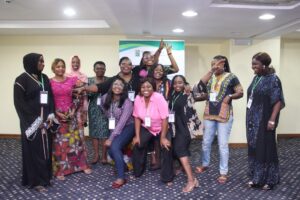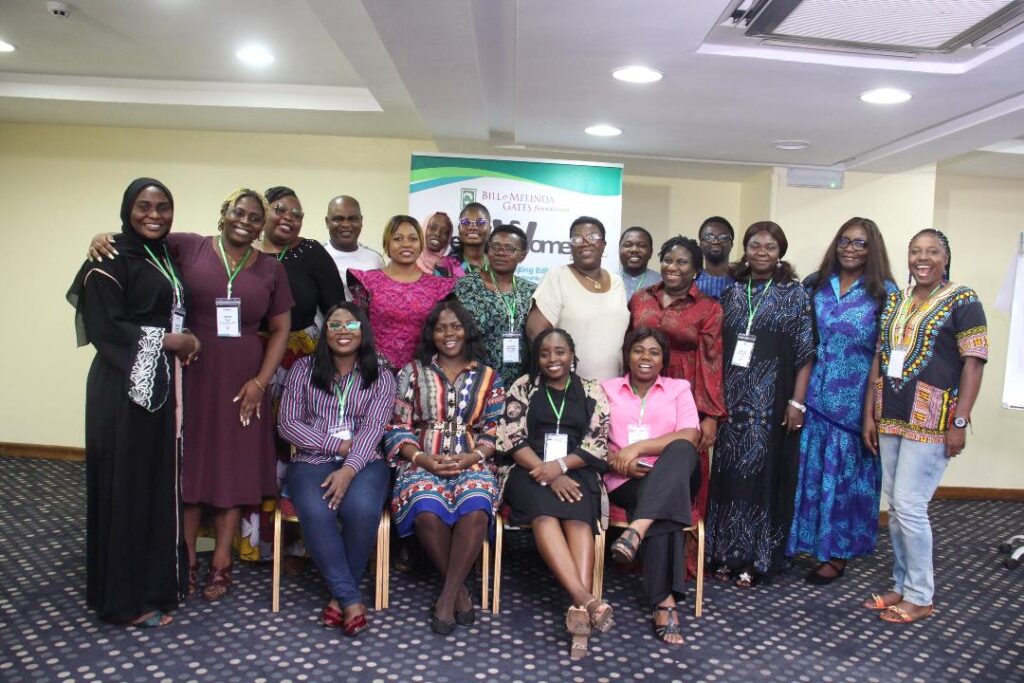The three-day training for the 2023 Female Reporters Leadership Programme held in Lagos by the Wole Soyinka Centre for Investigative Journalism ended on Friday, April 6. Blessing Osemobor brings you some key points the facilitators shared with the participants.
Report Until Something Happens (RUSH) is a strategy that is based on three premises:
- The media is a force for change.
- Media is a leader in the civil society space with immense convening power.
- If the media stays on an issue enough, using its capacity, the edge technology provides and collaboration with other stakeholders, it will make more impact in society.
– Motunrayo Alaka; Executive Director, Wole Soyinka Centre for Investigative Journalism @D_Encourager
Think of journalism as both an art and a science. Plan your story and its impact strategy ahead. Do not wait until the deadline is close. – Motunrayo Alaka; Executive Director, Wole Soyinka Centre for Investigative Journalism @D_Encourager
The greatest impact comes at the intersections of the communities of geography and interest. Trace the issues to its communities. Every news is first local and should be reported as such. – Motunrayo Alaka; Executive Director, Wole Soyinka Centre for Investigative Journalism @D_Encourager
Treat sources as resource persons and repositories of knowledge. Ask questions that help you to learn beyond the story you are working on. – Motunrayo Alaka; Executive Director, Wole Soyinka Centre for Investigative Journalism @D_Encourager

Treat news as a means to an end rather than an end in itself. Know your story can make a change. Stay on the story until there is a change. Deploy technology to amplify the story. – Motunrayo Alaka; Executive Director, Wole Soyinka Centre for Investigative Journalism @D_Encourager
Treat journalism as a product and make credibility your Unique Selling Point. – Motunrayo Alaka; Executive Director, Wole Soyinka Centre for Investigative Journalism @D_Encourager
Map the stakeholders. Think about authorities, influencers and beneficiaries. Identify all the people you need to speak to. – Motunrayo Alaka; Executive Director, Wole Soyinka Centre for Investigative Journalism @D_Encourager
We all need to work hard to not reinforce stereotypes by what we do or do not do. – Stella Din-Jacob, Director of News TVC News @sdin_jacob @tvcnewsng
The stereotype is a mindset. Your stereotype is fed by your experiences. You must learn to live with stereotypes because they can not be avoided. Confront it. – Stella Din-Jacob, Director of News TVC News @sdin_jacob @tvcnewsng
Practical steps to improve communication and presentation skills.
- To engage the hearts and minds of the people listening to you, keep it simple. It’s important you understand the setting and the kind of people you are talking to.
- Use conversational English. Avoid words that you would not use in your day-to-day life.
- You should be able to read your script in a way that allows you to interpret what you read.
- Keep it natural. When you speak with an accent that is not yours, there is a tendency to make mistakes.
- You cannot make a pitch and be flat. Your voice has to rise and fall. It rises when you want to emphasise something and falls when you want to de-emphasise something.
- Eye contact suggests you are confident enough. It also suggests you bond with the audience and helps you engage better.
– Stella Din-Jacob, Director of News TVC News @sdin_jacob @tvcnewsng
Sustaining a movement for change, reporters can’t solve it alone. They need other people like policymakers and community people to bring about societal change.- Abiola Akiyode-Afolabi, Executive Director, Women Advocates Research and Documentation Centre @abiolaa @womenadvocate
Transformative change will not occur if the problems are not identified. We need to think beyond what we hear or see. – Abiola Akiyode-Afolabi, Executive Director, Women Advocates Research and Documentation Centre @abiolaa @womenadvocate
We need the media to inspire conversations about making societal change. It is important to know what we want when expecting a change; we can make it happen if we do things differently. – Abiola Akiyode-Afolabi, Executive Director, Women Advocates Research and Documentation Centre @abiolaa @womenadvocate
For impact, you must collaborate with other media organisations to publish your investigative stories, not just in your immediate organisation. – Abiola Akiyode-Afolabi, Executive Director, Women Advocates Research and Documentation Centre @abiolaa @womenadvocate
Five things to know about sustaining a movement campaign for change.
- Change is a process, it happens slowly
- Be focused
- Be patient
- Be tenacious
- Have a sense of humour
– Abiola Akiyode-Afolabi, Executive Director, Women Advocates Research and Documentation Centre @abiolaa @womenadvocate
#ReportWomen #FRLP Participants share their stories, leadership project ideas and motivation with the fellowship.
“I want to help girls to build their self-esteem and competence in journalism.” Fortunate Ozo @FortunateO30850 @NTANewsNow
“I am a girl on fire, watch out for me!!!” – Ijeoma Okereke @LoveleenIJ @CJIDAfrica
“I have learnt to be more intentional about women’s inclusion. I would like to educate people in my area about the laws that guarantee women’s rights and to ensure these laws are implemented.” – Olufisoye Adenitan @OlufisoyeAdeni1 @radionigeriahq
“I am looking forward to my projects, investigative reports and partnership with other fellows.” – Karina Inemo @karinainemo
READ ALSO: Insights from 2023 Female Reporters Leadership Programme (1)
READ ALSO: Day 2 Insights from 2023 Female Reporters Leadership Programme

